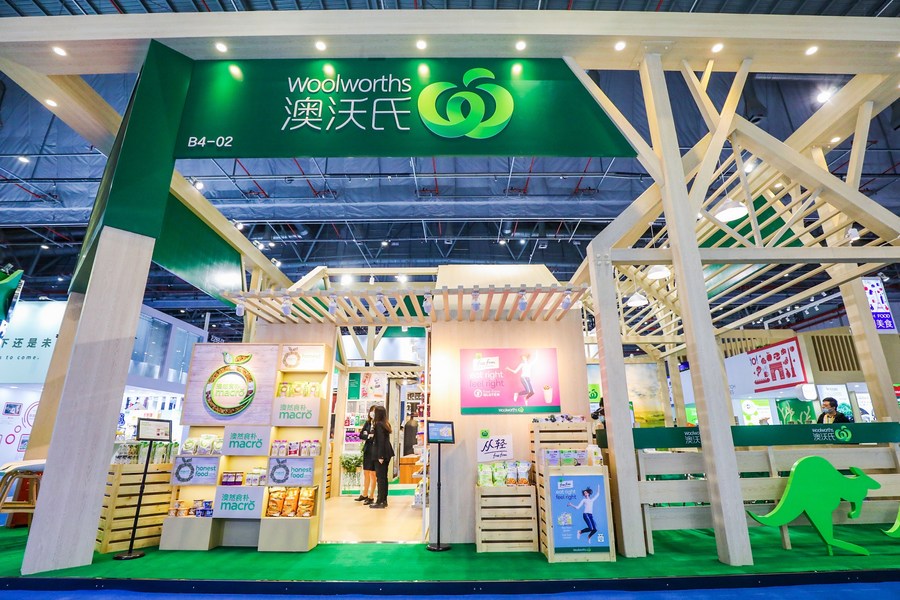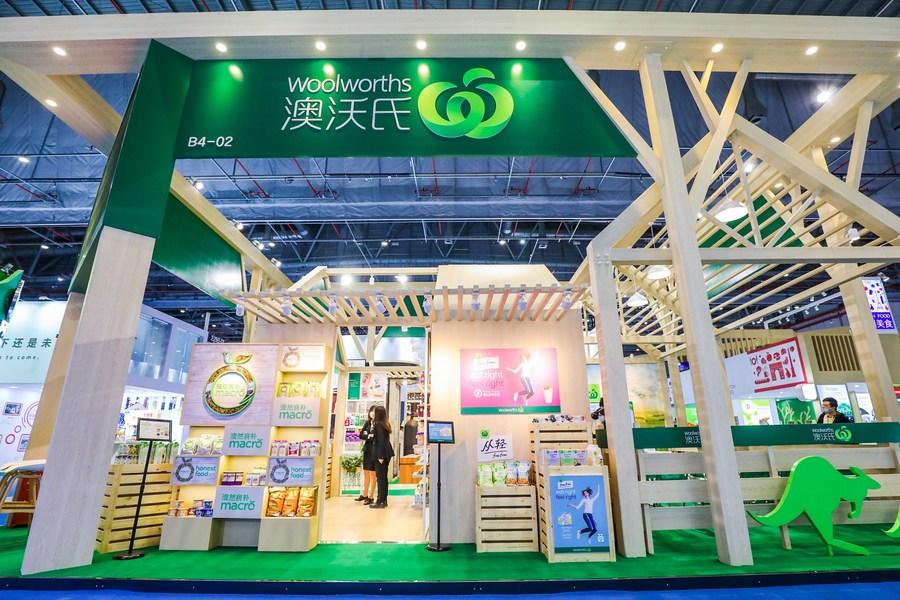
A woman visits "Taste Life" exhibition of artists' work and cultural creative products from Jiangsu Art Museum at China Cultural Centre in Sydney, Australia, Nov. 11, 2021. (Photo by Hu Jingchen/Xinhua)
Recognizing the challenge for Australian policymakers when their ally, the U.S. administration, sees China's rise as a threat, former Australian ambassador to China said it would come down to Australia "being able to develop and define an independent foreign policy."
CANBERRA, June 8 (Xinhua) -- Ties between the Australian and Chinese people are very strong, which is good for the improvement of the two countries' relationship, said Geoff Raby, former Australian ambassador to China.
"The people-to-people links are so strong. I think it's the bedrock where the (bilateral) relationship will be based," he told Xinhua in a recent interview.
Raby served as the Australian ambassador to China between 2007 and 2011.
Chinese individuals have made a "very big contribution to Australian life and understanding," he said, noting that about 5 percent of the Australian population are ethnic Chinese, and Mandarin is the second most commonly spoken language here.
He cited one of his friends, an ethnic Chinese surnamed Wong, who had been involved in a project writing a book about Chinese who worked with Australian troops in World War I.
"The Chinese worked alongside the Australian troops and they have not been recognized in Australia's official war history until now," Raby said. "So we have many layers of the relationship to understand and to unfold."
The former diplomat still visits China from time to time nowadays and has always been very excited by his traveling there. "It's a huge, immensely rich, diversified country with so much history that is so old as well," he said.
"And it's a phenomenally rich country in which to travel for historical, cultural, artistic, culinary (interests), all of these reasons make traveling in China a very fulfilling and satisfying experience."

File photo taken on 2020 shows the exhibition area of Woolworths during the third China International Import Expo (CIIE) in east China's Shanghai. (Xinhua)
From time to time, he would write in Australian media about his experiences in China to improve people's understanding about the country.
Last September, the Australian Financial Review carried one of his articles titled "The remaking of Chinese city Taiyuan into a Singapore on steroids."
"It is a microcosm of China's story of the past 10 years -- rapid urbanisation and even more rapidly rising per capita incomes," he wrote in the article about the capital city of Shanxi Province in northern China.
"I love the opportunity to be able to write about it, and bring my perspective to a wider foreign audience," he said.
This year marks the 50th anniversary of the establishment of diplomatic relations between China and Australia. Raby said he has just finished a book to mark the event.
He wished to see the relationship between the two countries improve, saying that apart from massive trade volumes, "the two countries are very much dependent on each other" at the level of tourism, education and service.
In terms of regional security, stability, peace and climate change, he said the two countries share interests as well.
Recognizing the challenge for Australian policymakers when their ally, the United States administration, sees China's rise as a threat, he said it would come down to Australia "being able to develop and define an independent foreign policy."




 A single purchase
A single purchase









